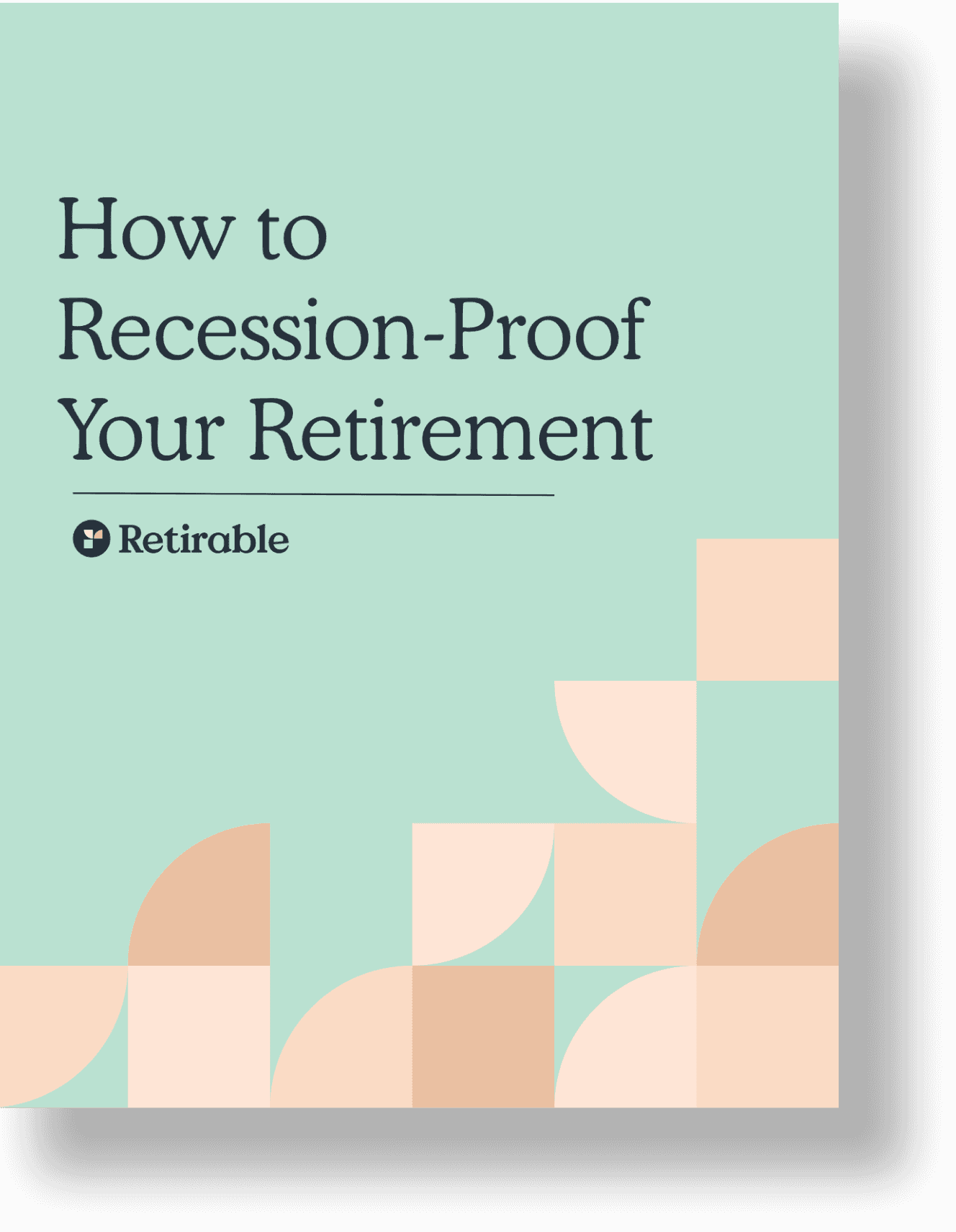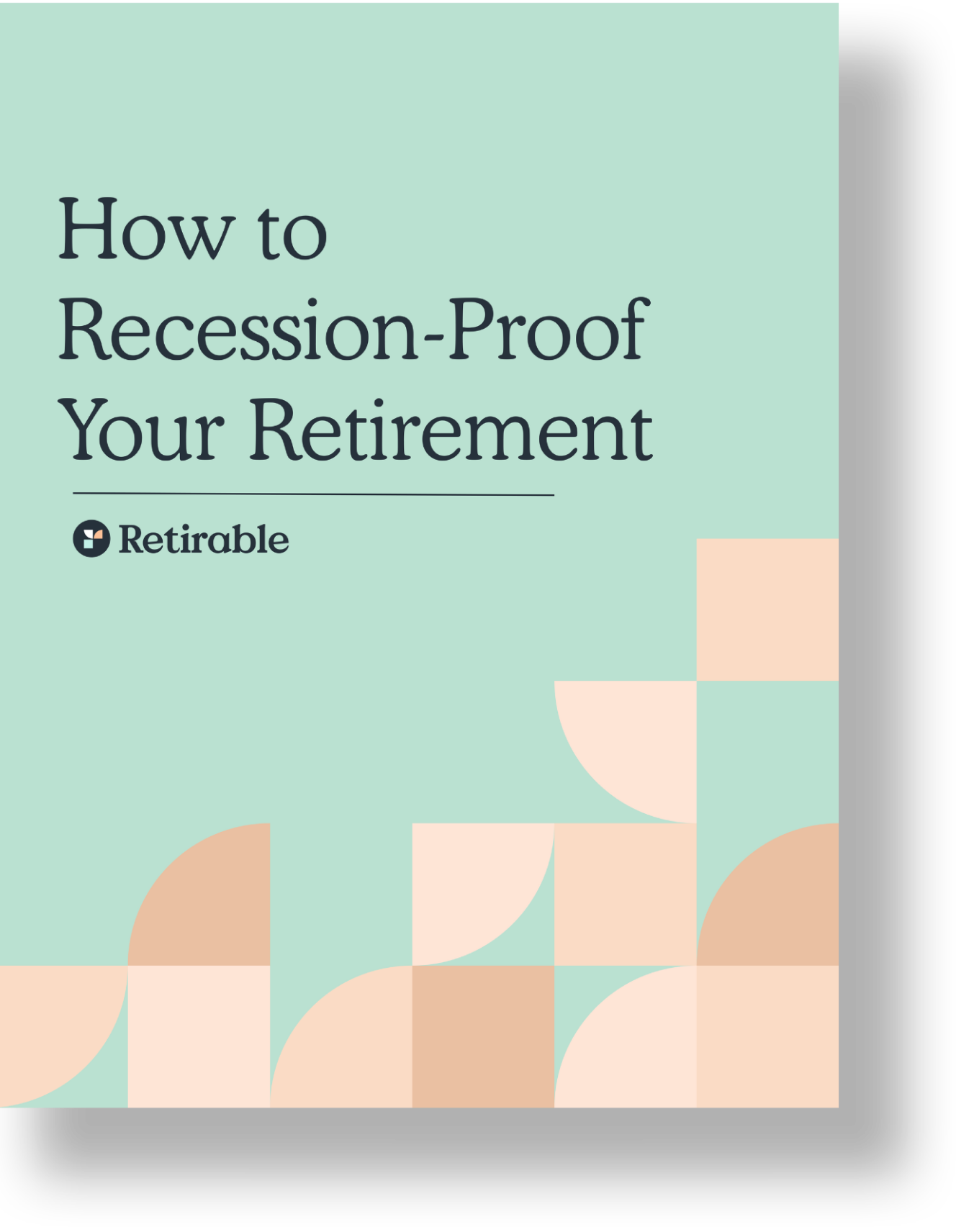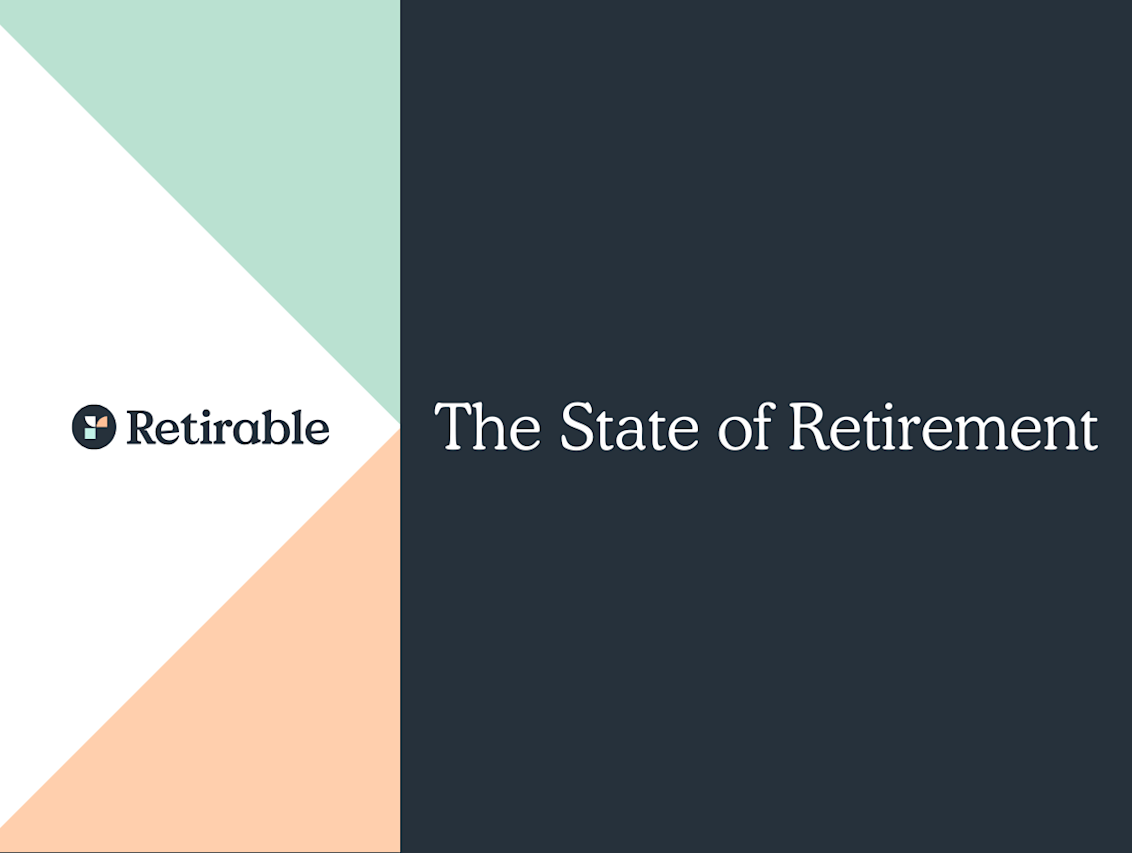News
In the spirit of Financial Literacy Month, we encouraged our newsletter subscribers to ask our team of fiduciary advisors anything about financial literacy, financial wellness, retirement, and all things money management.

Retirable
•
Published April 26th, 2023
Table of Contents
Key Takeaways
April is Financial Literacy Month, a yearly event to raise public awareness of the importance of financial literacy and maintaining smart money management habits.
We encouraged our newsletter subscribers to ask our team of fiduciary advisors anything about financial literacy, financial wellness, retirement, and all things money management.
After receiving a number of great questions, we found sorted the questions into three main categories: lifestyle, your money in retirement, and long-term planning.
April is Financial Literacy Month, a yearly event to raise public awareness of the importance of financial literacy and maintaining smart money management habits. We believe that a healthy financial future starts with financial education and literacy. We firmly assert that it’s never too late to start your financial literacy journey.
In the spirit of Financial Literacy Month, we encouraged our newsletter subscribers to ask our team of fiduciary advisors anything about financial literacy, financial wellness, retirement, and all things money management. After receiving a number of great questions, we found that most questions fell into three main categories:
- Lifestyle
- Your money in retirement
- Long-term planning
So without further ado, let’s close out Financial Literacy Month strong by answering your toughest questions!
Lifestyle
 The following questions relate to retirement lifestyle and how to make the most out of your golden years—before and during your retirement.
The following questions relate to retirement lifestyle and how to make the most out of your golden years—before and during your retirement.
Everybody I hang out with is from work, how do I meet people once I retire?
Retirement is by no means the end of your social life. It is healthy to keep the relationships you formed with your colleagues and can make the transition to retirement easier! You won’t be seeing your colleagues every day, so feelings of worry about not having the same daily social outlet are totally normal. Luckily, meeting like-minded people outside of work and maintaining your lifestyle in retirement can be done in many different ways.
One way to meet new people is to volunteer. Explore different organizations near you to see how they’re serving your community and how you can help out. Wherever you live, there will always be meaningful ways for you to connect with your community! As an added benefit, you will develop relationships with other volunteers—connections that may last a lifetime.
Another outlet for meeting new people is to explore your hobbies. Whether you enjoy the quiet reading of a good book or find happiness in physical activities, there are groups out there for you. You can find groups on social media networks, or get involved with city-run programs. For those seeking an online community, Senior Planet from AARP offers online live classes for retirees to continue to learn and grow, all the while making lifelong friendships!
I’m in my 70s, I could retire but I really enjoy what I do and the people I work with. If I keep working, do I need to keep saving for retirement?
Retirement is different for everyone, and everyone’s timeline varies. If you’re not itching to retire at 60, 65 or 70, there’s no shame in continuing your career. In fact, there are a number of benefits to working longer, if you choose to. By extending your career you may extend your benefits like employer-sponsored healthcare options and tax-deferred retirement savings.
As long as you continue to work, you can participate in employer-sponsored retirement plans like 401(k) and 403(b) accounts. The continued savings will give you more flexibility to fund your goals and lifestyle once you do decide to call it a career and retire. A financial advisor can help you understand how to best fund and achieve your retirement goals.
Beyond financial and healthcare benefits, working into your 70s can also help you maintain social connections and cognitive function—two things that many retirees fear will decline as they age.
Should I be scared to retire in a bad economy?
It’s perfectly normal to feel a bit nervous about retiring during an economic downturn or inflationary period, but there are ways to help ease your mind as you approach this key milestone. Perhaps the most important way to quell these concerns is by having a firm understanding of how your income will be replaced, and knowing you can rely on that for the entirety of your retirement.
If you will receive a pension and Social Security income, that may replace up to 70% or 80% of your pre-retirement income. However, if a majority of your income in retirement will come from your retirement savings accounts, a significant drop in your retirement accounts shortly before you retire might negatively impact your retirement plan.
To reduce this impact, we recommend a three ‘bucket’ investment approach.
- Cash bucket: This bucket provides the cash you need for the next twelve months of living expenses. We want to protect this money from market volatility as we know you will need to use it for monthly income over the next year.
- Stability bucket: This bucket is made up of the money we need in the next 2 - 10 years. We want this money to grow to keep up with inflation and cost-of-living increases while generating stable returns to provide reliable retirement income during this period. Your stability bucket should be mostly fixed-income assets like bonds and Treasury-backed securities.
- Growth bucket: This bucket contains the money you don’t need to access for 10+ years, so we want stock exposure to generate larger long-term returns.
Develop an investment strategy that reflects your ability and willingness to stomach volatility in retirement. The best way to know how to invest in retirement is by building a financial plan.
Your Money in Retirement
 The following questions pertain to how your money can work effectively for you before and during retirement.
The following questions pertain to how your money can work effectively for you before and during retirement.
What should I do with my 401(k) after I retire?
After you retire, you have options with your employer-sponsored retirement plan. A few of the most common actions you can take are:
- Keep your savings in the 401(k): If you’re satisfied with your current investments, keeping your savings in your current retirement accounts could be the right strategy for you.
- Rollover the 401(k) to an IRA: If you desire more investment choice and getting out of potential maintenance fees, rolling your 401(k) to an IRA could be the right strategy for you. Both the 401(k) and IRA provide tax-sheltered growth, so rolling over does not trigger a taxable event.
- Take a lump-sum distribution: If you want to access the entirety of your funds, you may want to consider a lump-sum distribution. However, this option may come with tax implications. Talk with a financial advisor to see if this option is feasible for your current situation.
It is important to make sure that planning for your 401(k) in retirement is incorporated into a greater, overall plan. How and when you take distributions from your 401(k) in retirement will depend on other factors like cash flow needs, tax rates, and other assets you hold in retirement.
Does my emergency fund need to change in retirement?
The general rule for emergency funds is to have three-to-six months worth of expenses saved. This target amount can vary for each person, depending on the circumstances. If you are about to retire, increasing your cash reserves may be beneficial if you expect minimal fixed income for an extended period of time.
For example, let’s say you retire this month and have another eight months until you turn 62 and can elect your Social Security benefits. For the next eight months, you may be dipping into your retirement savings to build a bridge until you can elect Social Security. It would be beneficial to increase your emergency funds before you retire for those eight months when you have a limited fixed income. For those who have been retired for a while now, you most likely have a good grasp on your expenses and can continue to follow the three-to-six-month rule.
Emergency funds should be liquid and easily accessible. Avoid locking up your emergency fund in investments where you may be penalized for accessing the funds (CDs, bonds, etc). A great spot for your emergency funds during inflationary periods is an interest-bearing savings account. Speak to your Retirable advisor today about Retirable’s high-yield savings account and debit card!
Is it better to have all Roth or pre-tax accounts going into retirement?
Great question! Let’s start with a quick overview of the difference between the two types of accounts.
With pre-tax accounts, 401(k)s, or traditional IRAs, you contribute your earnings before the dollars are taxed. In addition, pre-tax contributions lower your taxable income while working. Once you start to take withdrawals, dollars are taxed at your current ordinary income bracket, which is usually lower in retirement versus while you are working.
With after-tax accounts, Roth 401(k)s, or Roth IRAs, you contribute after your earnings are taxed. Therefore, when you take withdrawals, dollars will not get taxed again (tax-free!). Roth accounts are also not subject to Required Minimum Distributions (RMDs), whereas pre-tax accounts currently have RMDs starting at age 73.
Now that we understand the difference between the two types of accounts, we can talk about what is best for you. In general, most people will see a drop off in their income and income tax bracket once they retire. This means withdrawals from pre-tax accounts, 401(k)s, or traditional IRAs, are beneficial for you because you are paying lower taxes in retirement than if you had paid the taxes upfront while working.
However, if you expect your income levels to increase in retirement due to pensions, social security, or required minimum distributions, an after-tax account can be better to pay up-front in a lower tax bracket.
Ultimately, there isn’t a one-size-fits-all answer. Diversification of your investment tax buckets is often a better option than having all investments in one type of account!
How do I know when I’ve saved ‘enough’?
An almost universal concern for people approaching retirement is the age-old question of ‘Do I have enough money saved?’ Unfortunately, there is no one-size-fits-all answer to how much you should have saved for retirement. Luckily, there are a few things you can do to begin to solve this question.
Start by mapping out your current income and your current expenses to establish a baseline. Next, calculate what your income will need to be in retirement. Using your projected retirement income and current expense level, you can determine how much of a gap there is (if any) that needs to be covered with distributions from your retirement savings. It can get tricky from this point on to determine projected growth rates and how recurring withdrawals affect your financial plan over ten, twenty, or more years.
A fiduciary advisor will help you assess your retirement plan, determine your retirement savings needs, and provide ongoing guidance and adjustments as things inevitably change in your retirement.
Long-term Planning
 The following questions pertain to long-term planning and how retirees can set themselves up for success throughout the entirety of their retirement.
The following questions pertain to long-term planning and how retirees can set themselves up for success throughout the entirety of their retirement.
My husband is sick, and I will likely outlive him by a number of years. How will his death affect my retirement?
We’re so sorry to hear about your husband and hope the best for both you and him in the coming years. Depending on your specific financial situation, your husband’s death may have a big impact on your retirement. Longevity is a huge factor to consider when planning for retirement—especially for couples—because a reduction in income doesn’t always reduce expenses proportionally.
Pensions and Social Security do provide survivorship benefits. For a pension, your spouse would have had to elect the survivorship option before they started collecting. For Social Security, upon your spouse’s passing, you will begin to collect the higher of the two Social Security benefits.
Most importantly, you will want to make sure the proper beneficiaries are updated in your investment accounts. This way, when your spouse passes, you avoid any potential delays in assets being distributed. Conversations about end-of-life planning are never easy. As difficult of a conversation as it is, addressing these matters now allows you to formulate a plan and a smooth transition in the event of your spouse passing.
I don’t have long-term care insurance. Is that bad?
Preparing for a long-term care event in retirement should be a part of everyone’s retirement plan. A long-term care (LTC) insurance policy provides assurance and services when needed, but the policies tend to be expensive to maintain and are not practical for many households. LTC policies become increasingly expensive to purchase later in life because the likelihood of them being used is higher.
The first step for preparing for long-term care is to think about what your potential needs will be. Do you or your spouse have a family history of cognitive illnesses like Alzheimer's or Parkinson's'? If so, the likelihood of needing sustained care is high. If you are relatively healthy with no serious illnesses in your family history, your chance of needing long-term care may be lower or non-existent.
There are a variety of avenues to fund a long-term care scenario without an insurance policy. You can rely on personal savings and assets to pay for long-term care services. It is also common for families to step in and assist in the event you or your spouse need a caretaker. Federal and state programs can also provide qualifying family members with compensation when acting as a caregiver for a loved one.
Lastly, Medicaid will provide long-term care services for qualifying individuals. To receive Medicaid coverage, there are a number of conditions that need to be met before you can qualify, specifically in regard to income and assets. The quality of care can also vary as not all assisted living or senior centers take Medicaid.
What happens if I outlive my retirement savings?
A common fear for many retirees is spending too much from their nest egg and running out of money. To avoid this situation, it is crucial to build a financial plan and find out what is safe to spend from your savings.
There can be repercussions if you do outlive your retirement savings, including:
- Returning to work: For some, this may not be an option due to physical limitations. If you are able to return to work, the benefits are that you don’t rely on expensive strategies to make ends meet (credit cards, personal loans, etc.) and that you can build up cash savings.
- Reducing your standard of living: It can be very difficult to reduce your standard of living once you become comfortable with a certain lifestyle. If you no longer have savings to tap into to afford your lifestyle, you will rely solely on your fixed income (e.g. Social Security) to pay for essential expenses such as healthcare, housing, and basic living needs.
If you do outlive your retirement savings, support can come from the following:
- Depending on others: Having loved ones that are willing and able to assist in supporting you in retirement can be an option. However, this situation can be emotionally and financially tough for families depending on the level of support.
- Government assistance: For those who don’t have loved ones to turn to for support, there are government programs to assist. Medicaid, SNAP (Supplemental Nutrition Assistance Program), and Section 8 housing are a few programs that can help low-income households in retirement. Additionally, each state offers different assistance programs to aid retirees.
Final Thoughts
Planning for retirement can feel like a maze of questions, jargon, and uncertainty—and without the proper team by your side—it can feel very overwhelming. You’re not alone. According to our recent study, The State of Retirement 2023, more than two-thirds (67%) of respondents have not met with an advisor to create a financial plan, and less than one-third (31%) have.
In the spirit of Financial Literacy Month, Retirable is aiming to change that reality and provide access to a confident worry-free retirement for everyone. It’s never too late to start charting your ideal financial future and live your golden years to the fullest. Get started with a FREE retirement plan from a Retirable Advisor today!
Share this advice

Retirable, the first-of-its-kind holistic retirement solution with the ongoing care of an advisor, offers products and services across the retirement investing, planning and spending spectrum. Retirable was founded by industry veterans to empower a worry-free retirement for everyone.
Share this advice

Retirable, the first-of-its-kind holistic retirement solution with the ongoing care of an advisor, offers products and services across the retirement investing, planning and spending spectrum. Retirable was founded by industry veterans to empower a worry-free retirement for everyone.
Free Retirement Consultation
Still have questions about how to properly plan for retirement? Speak with a licensed fiduciary for free.






